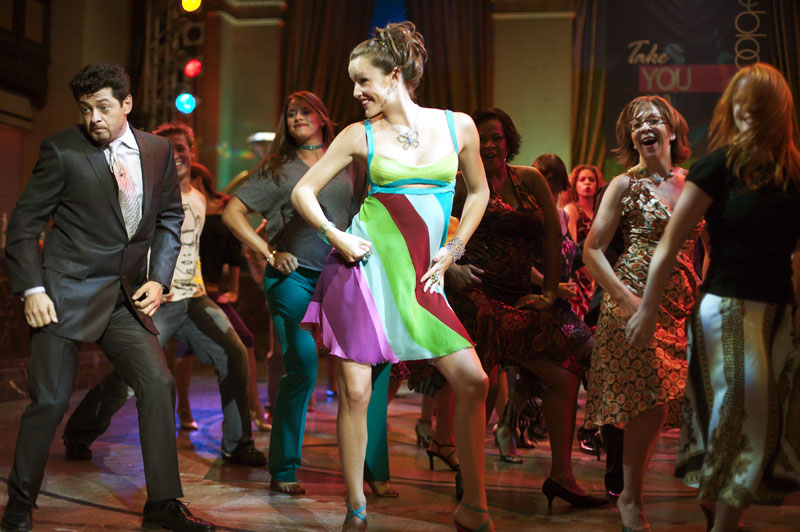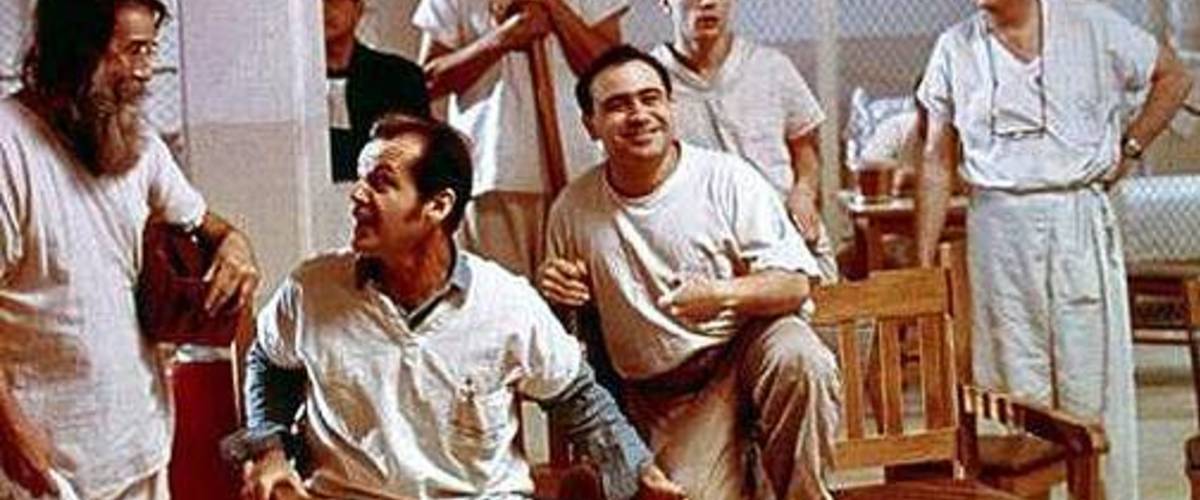
Directed by: Ryan Murphy
Starring: Courtney B. Vance, John Travolta, Cuba Gooding, Jr., Sterling K. Brown, Nathan Lane, Evan Handler, Sarah Paulson, Bruce Greenwood, David Schwimmer, Selma Blair, Malcolm Jamal Warner
The People vs. OJ Simpson is a trainwreck unfolding in slow motion before your very eyes. How on Earth did the Los Angeles District Attorney's office fail to convict O.J. Simpson of the murders of Simpson's ex-wife Nicole and Ronald Goldman? The series takes into account juror unrest, bias, racism, and America's love of celebrities. But, Marcia Clark (Paulson) and Christopher Darden (Brown) made enough dunderheaded moves on their own to dismantle their own case. There was a mountain of evidence against Simpson, probably more than enough to easily convict him, yet he secured a not guilty verdict. Perhaps that was the issue. Clark and Darden treated the case as if it couldn't be lost and made costly mistakes, such as allowing themselves to be goaded into letting Simpson try on the blood-soaked glove. Through subtle acting or whatever means, the glove did not fit, and that became the lasting visual in the minds of the public and the jurors.
The series takes us through the investigation that began hours after the brutally slain bodies of Nicole and Ronald Goldman were found at her Brentwood home on June 12, 1994. Simpson was an immediate suspect because witnesses placed his famed white Ford Bronco at the scene and a blood trail led to his backyard. Simpson had no believable alibi, the blood was found all over the Bronco, the glove found on Simpson's property, and there was motive. Days later, Simpson was to be charged with the murders, but in the first of many, many mistakes, the DA allowed Simpson's attorney Robert Shapiro (Travolta) to arrange for his surrender instead of arresting him. Simpson, along with his friend A.C. Cowlings (Warner), had other plans as the world soon learned.
The case was a media sensation and became "the trial of the century". There was round-the-clock media coverage, endless debates, relentless public scrutiny, and of course the permission to allow the trial to be filmed as if it were some reality TV show. Each day, the worldwide audience witnessed the ebb and flow of the nearly year-long trial. O.J. Simpson was, and is, the most famous person ever charged with murder, and the world couldn't get enough of it. Did the attorneys, even the prosecution, play subtly to the cameras? You betcha. Especially Johnny Cochran (Vance), who saw the case as his opportunity to make a larger point about inherent racism present in the LAPD, which only three years earlier made headlines with the Rodney King incident. To me, it's hard to categorize the LAPD as racist in its treatment of Simpson when evidence and testimony showed some of its officers did everything but genuflect in front of Simpson when they were called to the scene of his domestic disputes with Nicole. They didn't see black or white. They saw rich and famous, so did many others.
We all know how the trial turned out. The series is not so much a documentary about the trial as it a reflection of the issues and feelings surrounding it. We see the intense pressure put on Clark and Darden to convict. Clark herself is going through a divorce on top of everything else. Sarah Paulson uncannily captures Clark in her performance, along with all of the inner conflicts she went through. She internalizes everything Clark must have felt during the trial and how people felt about her. Mock juries did not like her, believing she came off as a bitch. Her hair, which started out curly, was soon straightened and styled to soften her look.
On the other side is O.J.'s legal team, led at first by Shapiro, then by Cochran, which led to internal strife between the two. The performances by Travolta and Vance are studies in contrast. Travolta plays Shapiro, a celebrity attorney, as a showman himself to the press. It is a sublime piece of acting to see the public Shapiro and the private Shapiro. We wonder which is which after a while. Vance also allows us to see inside Cochran even if we don't agree with his tactics. His job is to win an acquittal for his client. Whether he can sleep at night afterwards is anyone's guess. It's also fascinating to see the internal struggles of Chris Darden, who as played by Brown is a look at a black man prosecuting another one. Brown reveals so many things with just his eyes. David Schwimmer also undergoes interesting changes as Robert Kardashian, who at first completely believes in his friend O.J.'s innocence, but changes his mind as the evidence piles up. In his mind, how could the murderer be anyone else? He poses this revealing question and, in a way, represents those who at first could not or did not want to believe in O.J.'s guilt, but then the guilt became obvious.
It took some getting used to Cuba Gooding, Jr. as O.J Simpson. Gooding is such a recognizable actor that we have to get past the fact that it is Cuba Gooding Jr. playing Simpson instead of Gooding embodying him. Would a lesser known actor have been less of a distraction? Probably. Aside from the first two episodes of the series, Simpson is mostly on the sidelines while his legal team maneuvers its way from one tap dance to another.
The trouble is, only the 12 people in the jury box had the power to determine Simpson's guilt and they voted for acquittal. The People vs. OJ Simpson is riveting, fascinating drama in which both the prosecution and defense have to put on their best show for the jury. This is how the legal system is set up for better or for worse. Those who work in the legal system are somewhat in show business already, even without the cameras.











